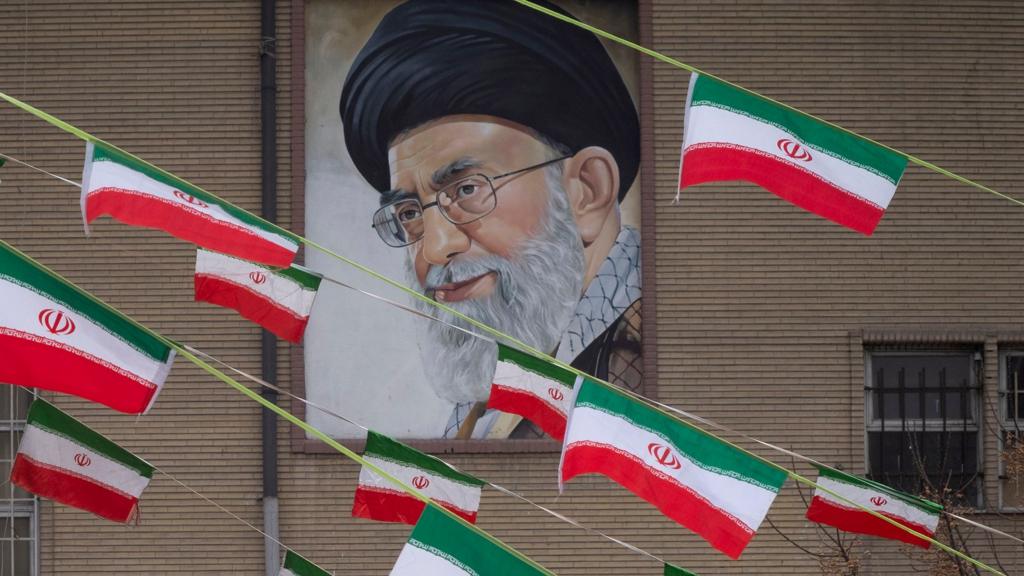“`html
The United Kingdom faces an escalating and unpredictable threat from Iran, requiring a more robust government response, Parliament’s intelligence and security committee has warned.
This assessment follows the publication of a major inquiry into Iranian state-sponsored assassinations and kidnappings, espionage activities, cyber attacks, and its nuclear ambitions.
The report, which gathered evidence up to August 2023, does not address the impact of heightened tensions since the October 7th attack on Israel by Hamas or the subsequent Iran-Israel conflict. However, the authors maintain the findings remain pertinent.
The committee expressed particular concern regarding a “sharp increase” in physical threats targeting opponents of the Iranian regime within the UK.
Committee Chair Lord Beamish stated, “Iran poses a wide-ranging, persistent, and unpredictable threat to the UK, UK nationals, and UK interests.”
He added, “Iran exhibits a high appetite for risk in conducting offensive activities, and its intelligence services are exceptionally well-resourced with significant areas of asymmetric strength.”
The Iranian embassy in London issued a statement “wholly rejecting” the report’s conclusions, characterizing them as “biased” and “baseless.”
The committee, responsible for overseeing Britain’s intelligence agencies, accuses the government of prioritizing “crisis management” and “fire-fighting” in its approach to Iran, particularly regarding its nuclear program, at the expense of addressing other threats that require a better-resourced, long-term strategy.
The report asserts, “While Iran’s activity may appear less strategic and on a smaller scale compared to Russia and China, it nonetheless poses a wide-ranging threat to UK national security that should not be underestimated. It is persistent and – crucially – unpredictable.”
Intelligence bodies reportedly informed the committee that, concerning the threat to the UK, Iran “would be top of the Championship rather than the Premier League, but rising.”
The report indicates that physical threats against individuals residing in the UK have escalated since 2022, targeting dissidents as well as “Jewish and Israeli interests in the UK.”
The committee stated that there have been at least 15 attempted murders or kidnappings against British nationals or UK-based individuals between the beginning of 2022 and August 2023, the cut-off point for evidence collection.
The report’s authors noted that they were advised that the physical threat was “comparable with the threat posed by Russia.”
The inquiry found that Iran “sees the UK as collateral in its handling of internal matters – i.e. removing perceived enemies of the regime,” with the surge in physical threats driven by protests fueling a sense of insecurity within the Iranian regime.
MI5 reported “persistent targeting” of Iranian media organizations operating in the UK, primarily Iran International, while BBC Persian and Manoto TV, which broadcast from the UK, were also identified as “prominent targets.” These outlets are viewed by Iran as “deeply undermining” its regime, the committee stated.
The committee found that family members of BBC Persian journalists in Iran have reported “severe harassment, including being summoned for interrogation and threatened because their family members continue to work for the organization.”
The committee acknowledged that the geopolitical landscape in the Middle East has undergone significant changes since 2023. Most recently, Israel and the US have launched strikes against Iran aimed at limiting its nuclear capabilities.
The report stated that Iran had not developed a nuclear weapon by August 2023 and had been “broadly compliant” with an international agreement to limit its nuclear program.
The US withdrawal from the agreement in 2018 increased the threat posed by a nuclear Iran, and the committee determined that Tehran “had the capability to arm in a relatively short period.” Nuclear de-escalation “must be a priority,” it concluded.
Addressing other areas, the report found:
Prime Minister Sir Keir Starmer was required to approve the report’s release due to its intelligence-related sensitivities.
A UK government spokesperson stated that the report “demonstrates the vital work” undertaken by security and intelligence agencies in countering threats posed by states such as Iran.
The statement continued, “We have already placed Iran on the enhanced tier of the foreign influence registration scheme and introduced further sanctions against individuals and entities linked to Iran, bringing the total number of sanctions to 450.”
Earlier this month, BBC Director-General Tim Davie called on Iran to “stop targeting journalists with violence, threats, and psychological warfare.” The BBC announced it was preparing to lodge a new complaint with the UN calling on Iran to cease its “campaign of persecution.”
“`

